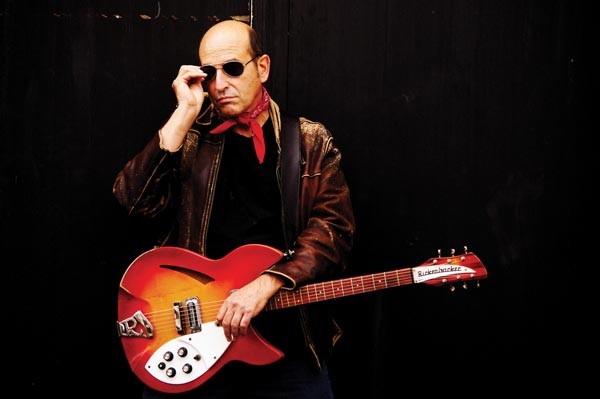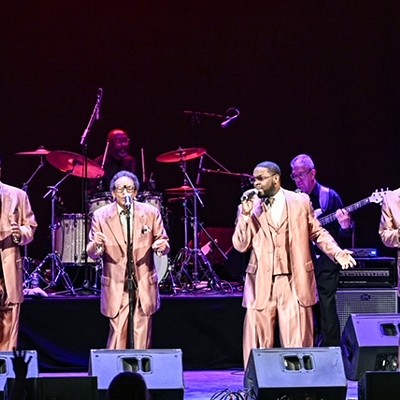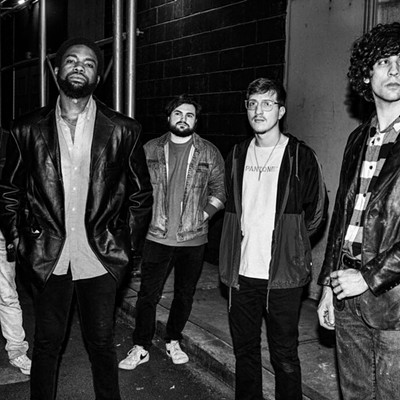It's a tale of two Beats, really: Back in 1979, an American band called The Beat was getting its start; frontman Paul Collins had previously been in the important but short-lived power-pop band The Nerves. Meanwhile, in the U.K., a young ska band was rising through the ranks — a band called The Beat.
Something had to give.
"All I know," recalls Collins, "is that I was advised by lawyers that this was the case: I owned the name here, they released their album in England, and they owned the name there: You gotta do something, legally. You can't release your album in England using the name ‘The Beat,' because there's already a band there that owns that name."
But there was never any real animosity between the bands, according to Collins.
"There was never a time — I know there's been some stuff I've read online, like, we all sat down and started yelling and screaming at each other." That never happened, Collins says. "And there were no lawsuits as far as I know."
The result: The Beat from the U.S.A. became known generally as Paul Collins Beat. The band from the U.K. became known, in America, as The English Beat. The English Beat is now known as an important part of the 2 Tone ska scene, and the later transition into new wave. Paul Collins Beat toured relentlessly through the '80s, broke up for a bit in the '90s and got back together in the mid-'00s, hitting the road again.
For some time, both Beats were touring regularly — and Collins noticed that they'd end up close to one another, playing the same cities only days apart.
"Then one night in Pittsburgh, we were playing at the Rex, and they were playing across the street" at Diesel, Collins says. (It was November 2009; The English Beat played Diesel on a Friday night, and Paul Collins Beat at the Rex that Saturday night.) "And I said ‘Wow, this is too much.'"
This is where the saga becomes a very modern tale.
"Dave [Wakeling, the English Beat frontman] and I became Facebook friends."
Through a friend who played with The Romantics, who opened some dates for The English Beat, Collins began bandying about the idea of a tour that would feature both Beats.
"I said, ‘I've gotta get in on some of these shows!' And the next thing I know, I have a Facebook message from Dave, saying, ‘How about a tour?'"
Thus was born what Wakeling has since deemed the "Two Beats Hearting as One" tour: The English Beat headlines, Paul Collins Beat supports, Beat fans of all stripes show up.
"We both come from the same period, we're both considered pioneers in our respective genres, but we're musically on either end of the scale," says Collins. "So it's perfect."
With more than 35 years in music — first with The Nerves (with future Plimsouls frontman Peter Case), then with The Beat and as a solo artist — Collins has seen plenty of changes in touring.
"Number one: GPS," he says with a laugh. "Number two: cell phones.
"Other than that, I think the biggest changes in touring are more in me: I'm not up all night chasing girls, consuming all kinds of crazy things, drinking all kinds of crazy things. I'm much more of an eat-right, sleep-right kind of guy now. And I think everybody who works with me will attest to that: It's a much more relaxing environment."
Through the years, Collins has proudly maintained a DIY ethic when it comes to his music. After his initial Beat albums on CBS, Collins has released most of his music on smaller indie labels like Not Lame and Alive. (Some of Collins' records have been released in part by Pittsburgh-based Get Hip! Records.)
"I think the biggest thing about DIY today is it's the key for bands like myself, who may not have major-label support and managers and the whole big rock look — we take our future into our own hands, we're able to strip down our operations and make them money-making operations, because we're able to cut out a lot of the fat of other types of touring. And it also makes it more of a family operation."
Collins' mainstream exposure has been fairly limited: Paul Collins Beat never had a charting hit per se, and The Nerves' biggest song, "Hanging on the Telephone," is most famous as covered by Blondie. But Collins finds that those who follow him now are generally more knowledgeable about music than the average person.
"The people that come know all of our songs. I feel very fortunate that I can play songs from my entire career and they all fit together. We play stuff from The Nerves on through to the last album."
Collins, who spoke to CP on the eve of the tour's first date, is optimistic that, though his Beat is more power-pop, and even alt-country, and The English Beat is a ska band, fans of both will enjoy the whole show.
"I think a lot of the fans are fans of the era," he says. "I think musically speaking, they're going to be more open-minded than, say, if we'd done this tour 30 years ago. Then I think there might've been a problem. Because the divisions were a little bit more drawn."













